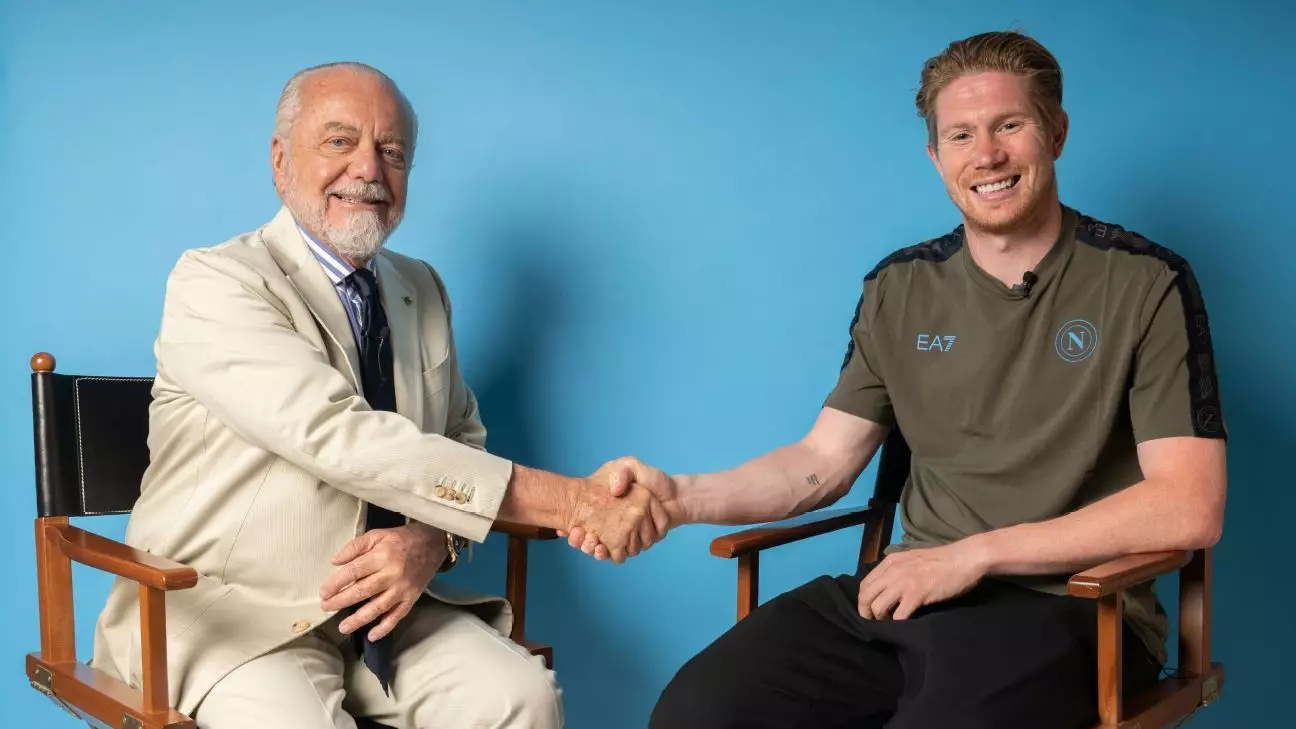Kevin De Bruyne’s decision to leave Manchester City marks a significant turning point, not just for the Belgian midfielder, but for his career’s narrative. Having spent over a decade establishing himself as one of the Premier League’s finest, his departure signifies a desire for new challenges and growth beyond the familiar turf of England. While some might view this transition as a step down or a risk, De Bruyne’s words reveal a passionate pursuit of excellence and evolution. He is no longer content to rest on the laurels of his City legacy; instead, he seeks to carve out a new identity within Italy’s highly competitive Serie A. At 34, this move underscores his commitment to stretching his limits and embracing a fresh environment that promises both competition and personal development.
The Appeal of a New Challenge and the Power of Relationships
De Bruyne’s move to Napoli is not merely about switching leagues; it’s a calculated step rooted in both ambition and practical considerations. His acknowledgement of unpredictability in the Italian league demonstrates a humility and eagerness to learn—traits that define truly great athletes. What makes this transition more compelling is his connection to Romelu Lukaku, which adds a layer of familiarity and comfort to his adaptation process. Their longstanding friendship, dating back to their teenage years and shared experiences at Chelsea, provides De Bruyne with both emotional support and strategic advantage within the team. His belief that Lukaku’s presence will ease his integration strikes a broader chord about the importance of camaraderie and chemistry on the pitch. These relationships foster a sense of stability, allowing him to focus on the tactical and technical nuances of Italian football.
The Transfer as a Reflection of His Bold Spirit
While some might interpret De Bruyne’s departure as a sign of diminishing influence or a desire to chase monetary benefits, it’s clear his decision is driven by ambition. Joining Napoli—already reigning Serie A champions—signals a hunger for continued victory and a willingness to adapt to new styles of play under Antonio Conte. It’s an audacious move, especially given Napoli’s squad strengths and their aspirations for European dominance. For De Bruyne, this transition is an act of courage; he’s betting on his versatility and desire to remain at the top of world football. His statement about assisting Napoli’s growth illustrates that he sees himself not just as a player, but as a catalyst for change—a leader eager to leave a lasting impact. His transfer embodies a philosophy of relentless pursuit of excellence, regardless of age or comfort zone.
A Testament to Character and Vision
Ultimately, De Bruyne’s journey illuminates more than just a club change; it reflects a mindset of resilience and adaptation. His openness about learning a new style and embracing unfamiliar challenges demonstrates his maturity and desire to continually evolve—traits that set elite athletes apart. His friendship-anchored transition reveals that success in football is not only about talent, but also about forging genuine bonds and leveraging relationships. If De Bruyne’s age and experience serve as indicators, this move to Napoli could very well define the next phase of his illustrious career—one shaped by bold decisions, unwavering commitment, and a relentless pursuit of greatness.

Leave a Reply